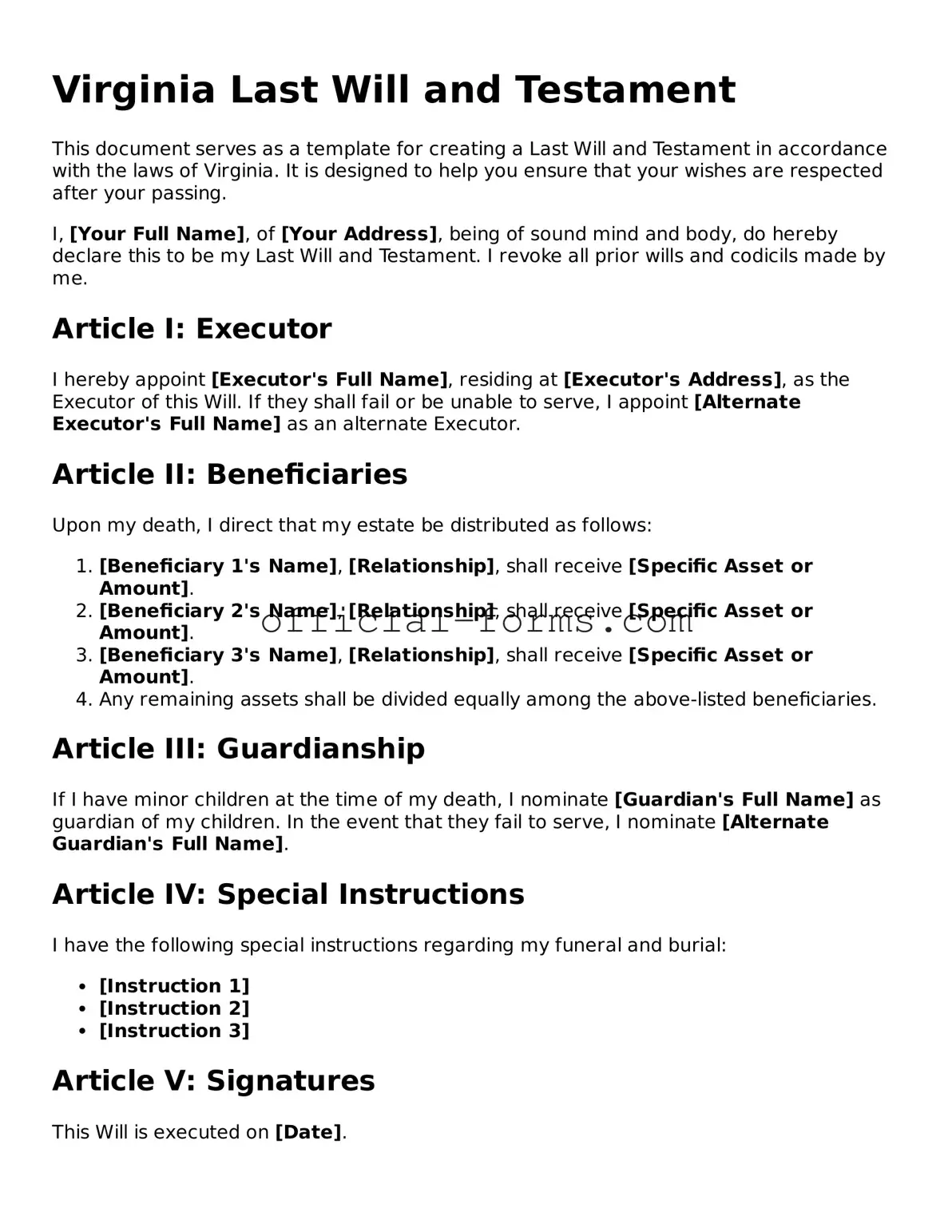Official Virginia Last Will and Testament Document
A Virginia Last Will and Testament form is a legal document that outlines an individual's wishes regarding the distribution of their assets after death. This form serves as a crucial tool for ensuring that one's estate is handled according to personal desires, providing clarity and direction for loved ones. By utilizing this form, individuals can help prevent potential disputes and ensure a smoother transition for their heirs.
Open My Last Will and Testament Now

Official Virginia Last Will and Testament Document
Open My Last Will and Testament Now
Don’t leave your form incomplete
Finish Last Will and Testament online quickly from start to download.
Open My Last Will and Testament Now
or
➤ PDF
